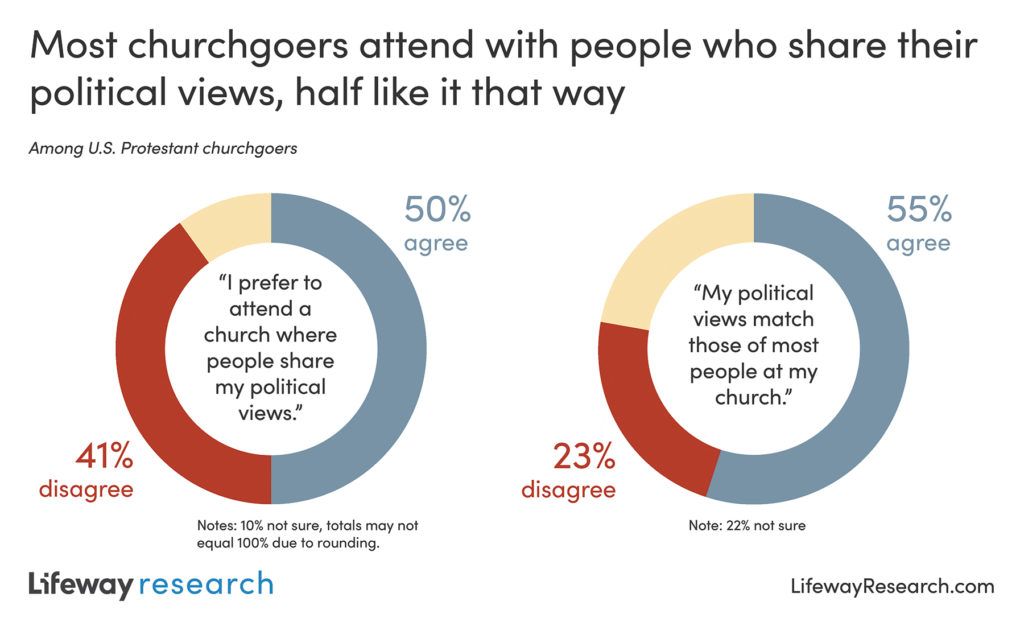As churchgoers head to the ballot box for midterm elections, most expect the rest of their congregation to be voting the same way they do.
Half of U.S. Protestant churchgoers (50%) say they’d prefer to attend a church where people share their political views, and 55% believe that to be the case at their congregation already, according to a study from Lifeway Research.
“Studies have shown that voting patterns and political affiliation correlate with the type of church and amount of church involvement someone has,” said Scott McConnell, executive director of Lifeway Research. “But when asked if churchgoers want political similarity to flow back into their church relationships, this is desirable for only half of churchgoers.”
Political Preference
While 50% of churchgoers prefer a politically homogenous congregation, 41% disagree, and 10% aren’t sure. Overall, the percentage of those looking to attend a church where people share their voting preferences is similar to a 2017 Lifeway Research study, when 46% said the same. However, more churchgoers are adamant about worshipping alongside their political peers. Around 1 in 5 (19%) now strongly agree they prefer to attend a church where people share their political views, up from 12% in 2017.

“While almost 1 in 5 churchgoers is adamant that they want to attend church with those who share their political views, there are just as many who strongly disagree with that perspective,” said McConnell. “The 23% who strongly disagree are clearly saying the source of unity they have with others in their church has nothing to do with partisanship.”
Younger churchgoers are more likely than older ones to prefer sharing a pew with someone of the same politics. Almost 3 in 5 of those under 50 (57%) want a congregation with people who share their political views, compared to 47% of those 50 to 65 and 41% of those 65 and older.
Ethnicity and education also play a role. White (54%) and African American (53%) churchgoers are more likely to want a church with shared politics than Hispanic churchgoers (25%). Those who are high school graduates or less (44%) are among the least likely.
Denominationally, Methodist (88%) and Restorationist movement (80%) churchgoers are more likely to say they want their congregations to have a common political perspective than Baptists (47%), Presbyterian/Reformed (47%), Lutherans (38%) and those who attend a non-denominational church (38%).
Churchgoers with evangelical beliefs (44%) are less likely than churchgoers who don’t strongly agree with the four core evangelical theology statements (54%) to say they prefer a church where people share their political opinions.
Despite their preferences, churchgoers may stick around even if the rest of the congregation doesn’t share their views. Another 2017 Lifeway Research study found only 9% of Protestant churchgoers said they would consider changing churches over political views.
Political Perception
Regardless of their preferences, most churchgoers believe they’re among their political tribe when at church. More than half (55%) of U.S. Protestant churchgoers say their political views match those of most people at their church. Fewer than a quarter disagree (23%) or aren’t sure (22%).
Just as more churchgoers strongly prefer a congregation of similar politics today, more churchgoers also strongly believe they are a part of such a congregation. In 2017, 51% felt their church was politically homogenous, with 11% strongly agreeing. Today, 21% strongly agree.

